
Jordan’s Takaful charity sells sheep at low prices to encourage people to aid the poor. (Photo : Al-Shorfa/ courtesy of Takaful)
Amman, 7 Dzulhijjah 1435/1 October 2014 (MINA) – Preparations are under way in Jordan to celebrate Eid al-Adha, with businesses importing hundreds thousands of livestock to meet market demand and charities encouraging Jordanians to give zakat so impoverished families can eat meat.
“There are now around 400,000 head of imported livestock throughout the kingdom’s provinces,” as well as 200,000 head of local livestock including sheep, cattle and camels, said Chairman of the National Committee for Slaughterhouses in Jordan, Nimr Haddadin,
During the Eid season, demand for livestock reaches 200,000 to 250,000 heads, he said, Al-Shorfa quoted by Mi’raj Islamic News Agency (MINA) as reporting, Wednesday.
Abdullah Zaid, who sells cattle in the Sahab suburb east of Amman, told Al-Shorfa that sheep this year are selling for between 180 and 280 Jordanian dinars ( 3 until 5 million IDR) based on their origin and weight.
Also Read: Syrian President Rejects Federalism, Says Coastal Region Remains National Priority
This year, he said, importing livestock from Australia and other Arab and European countries will help stabilise prices for the season.
To encourage people to give away meat to those in need, several non-profits and charities in Jordan are selling cattle for less than market price.
One such charity, Tkiyet Um Ali, organised several awareness seminars for zakat committees and sent representatives to commercial centres in order to introduce a campaign called “Sacrificial Animals in 2014”.
Through the campaign, “donors and people interested in giving away sacrificial animals can buy an animal for 100 dinars (1 million IDR), which is much lower than the market price”, said the charity’s director of social services, Mohammed Abu Jamous. “This encourages people to make donations, especially since sacrificial animals are distributed to poor families.”
Also Read: Syria, Jordan Condemn Netanyahu’s Visit to Occupied Syrian Buffer Zone
The charity has held the campaign over the past few years and it “has been hugely popular as it allows many in the local community to easily perform the sunnah of sacrificing an animal and makes it possible to feed a large segment of poor families throughout the kingdom”, Abu Jamous said.
The charity offers halal animals at an affordable price that includes the butcher and distribution of animals to impoverished residents year-round, he said.
Last year, the charity slaughtered 20,000 animals that went to around 7,000 families across Jordan, he said.
In accordance with Eid rituals, officials allotted several public spaces for the slaughter of animals, with monitors to ensure hygiene and health standards are met, Haddadin said.
Also Read: UNIFIL Reports Over 7,300 Israeli Violations of Lebanese Airspace Since Ceasefire
“We urge people to avoid slaughtering sacrificial animals at home or public spaces in close proximity to residential areas as this causes environmental pollution and this practice also clogs sewage systems,” he said.(T/P008/P3)
Mi’raj Islamic News Agency (MINA)
cheap timberland boots
hollister online shop
hogan outlet
scarpe hogan
prada wallet
toms outlet
Chaussure Air Jordan
prada shoes for men
mulberry uk sale
Also Read: Russia Condemns UN Gaza Resolution, Says It Contradicts Palestinian Statehood





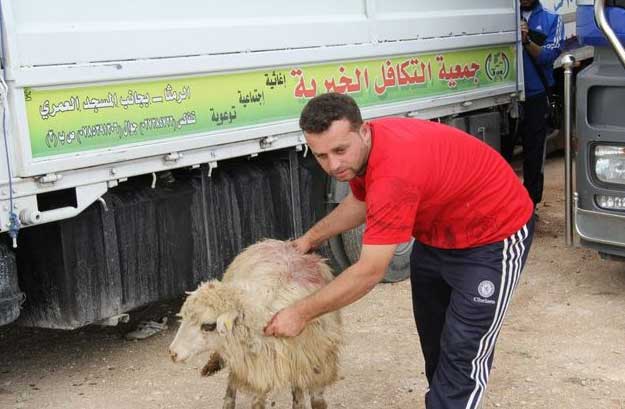





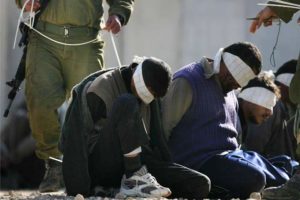

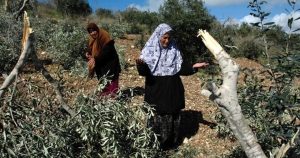

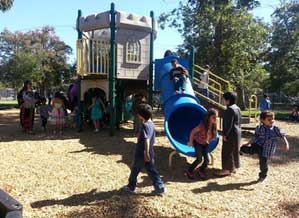
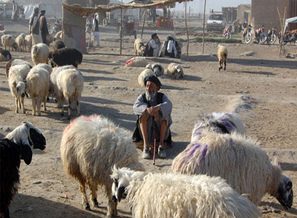
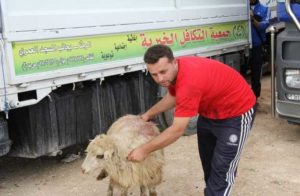












 Mina Indonesia
Mina Indonesia Mina Arabic
Mina Arabic